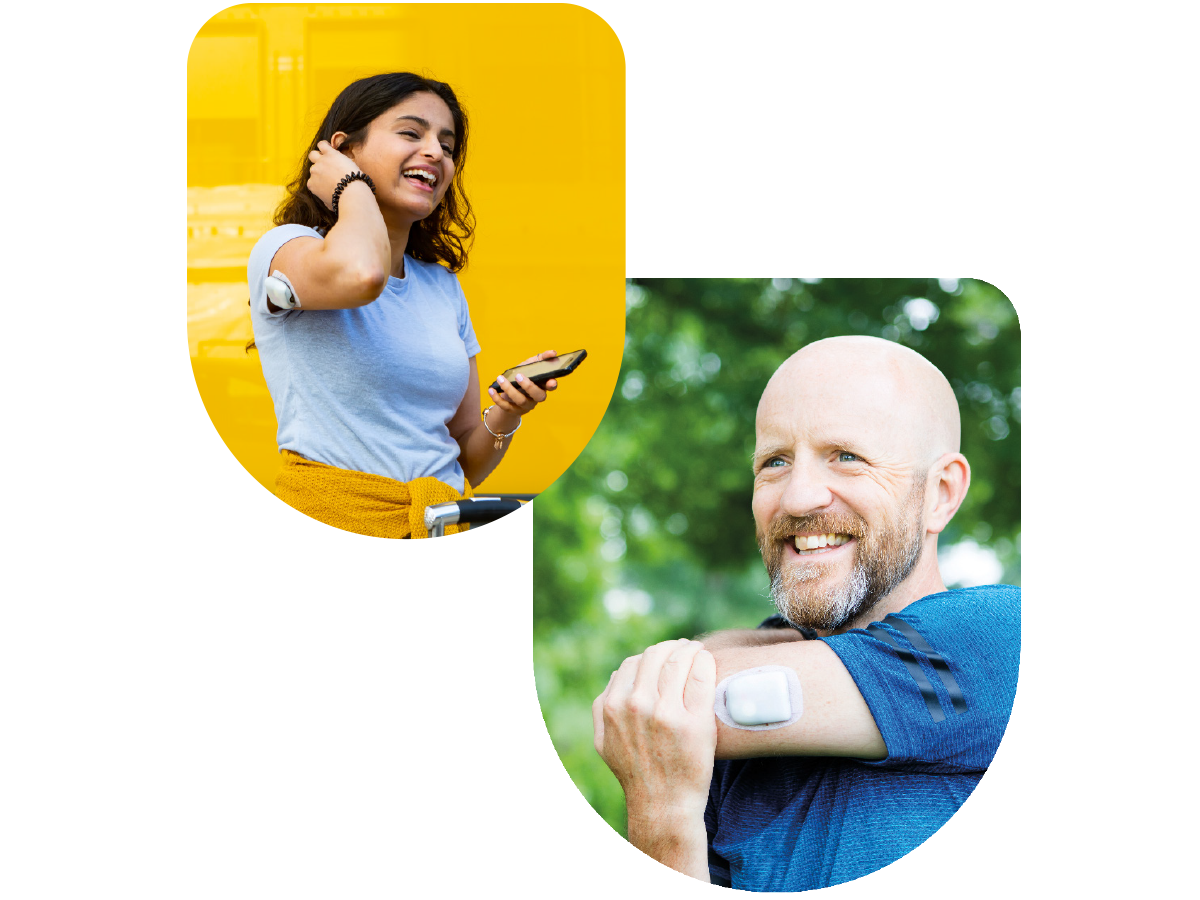Is Omnipod available on the NHS?
Diabetes Tech Discussion Guide: Access and next steps with your care team
Accessing diabetes management technology – an insulin pump, a continuous glucose monitoring system, or a hybrid closed-loop system – can feel complicated. This guide aims to answer some common questions and to support you in discussing your personal situation with your diabetes care team.
1- How can I get an insulin pump on the NHS?
Type 1 diabetes
If a diabetes specialist team believes that someone meets the clinical criteria for a pump and would benefit from pump therapy, NHS funding must be made available. If you are not currently under a diabetes specialist team, or it has been more than a year since your last hospital appointment, ask your GP for a referral.
England, Wales and Northern Ireland
The National Institute of Health and Care Excellence (NICE) published a mandatory Technology Appraisal of Continuous Subcutaneous Insulin Infusion (CSII, the technical name for insulin pump therapy) in 2008. There are different criteria for children aged younger than 12 and people aged 12 and up. A summary is online here.
Please note that the ‘Further information and support’ list on the back cover of that summary is out of date – see the list at the end of this document instead.
Scotland
The Scottish Intercollegiate Guidelines Network published a national guideline on the management of type 1 diabetes in 2010. The full guideline document is online here (see pages 33–34 for information on CSII).
Type 2 diabetes
Across the UK, insulin pump therapy is uncommon for people living with type 2 diabetes and NHS funding is possible only if a diabetes specialist team makes a special funding request, as there is no formal policy.
2- How can I get a continuous glucose monitoring (CGM) system on the NHS?
CGM systems including FreeStyle Libre 2 and Dexcom ONE are widely available on prescription to people with type 1 diabetes across the UK.


However, unlike insulin pump therapy, there are no mandatory national policies regarding access to CGMs. Some people living with type 2 diabetes can access CGM, depending on local policies.
- If you are not able to get a CGM on prescription from your GP, ask the diabetes specialist team to write to the GP regarding your need for a CGM.
- If you are not currently under a diabetes specialist team, or it has been more than a year since your last hospital appointment, you can ask your GP for a referral. - If you already have a CGM and you are seeking access to a different CGM system, you can ask your diabetes specialist team about local CGM funding policies, or it may be possible for you to self-fund it.
3 - How can I get a Hybrid Closed Loop (HCL) system on the NHS?
About HCL systems
An HCL system has three components: an insulin pump, a CGM and an algorithm which adjusts how much insulin the pump delivers based on the CGM data. The pump, CGM sensor, and algorithm all need to be able to ‘talk’ to each other to make an HCL system. See the ‘Next Steps’ section below for tips on talking with your diabetes specialist team if you are interested in an HCL system.
England, Wales and Northern Ireland
If a diabetes specialist team believes that someone meets the clinical criteria for an HCL system and would benefit from an HCL system, NHS funding must be made available. If you are not currently under a diabetes specialist team, or it has been more than a year since your last hospital appointment, ask your GP for a referral.
All HCL systems are available on the National Framework for the UK for Insulin Pumps and Associated Products. If a diabetes specialist team believes that someone meets the clinical criteria for an HCL system and would benefit, they can prescribe it.NICE published a mandatory Technology Appraisal of HCL systems for people living with T1D in December 2023. A summary of the national clinical criteria published by NICE for access to HCL systems is available here.
Scotland
The Scottish Health Technologies Group (SHTG) released an SHTG Recommendation on Closed Loop Systems and the Artificial Pancreas for Type I Diabetes Mellitus (T1DM) in January 2022. A summary and a link to the full Recommendation document are online here. Scottish Health Boards are working on implementing this Recommendation through the ANIA programme.


Next Steps
Preparing to share with the diabetes specialist team
Starting 3–4 weeks before your next diabetes appointment
Starting 2–3 weeks before the appointment
A few days before the appointment
During the appointment
At the end of the appointment
After the appointment
Further information and support
NATIONWIDE
ENGLAND
WALES
SCOTLAND
NORTHERN IRELAND


Talk to an Omnipod® Specialist
Still have more questions about the Omnipod® System? Enter your information below and one of our Omnipod® Specialists will call you in 24-48 hours for a one-to-one chat. Or you can call us direct at 0800 011 6132* (option 4) or +44 20 3887 1709 (option 4) if calling from abroad.